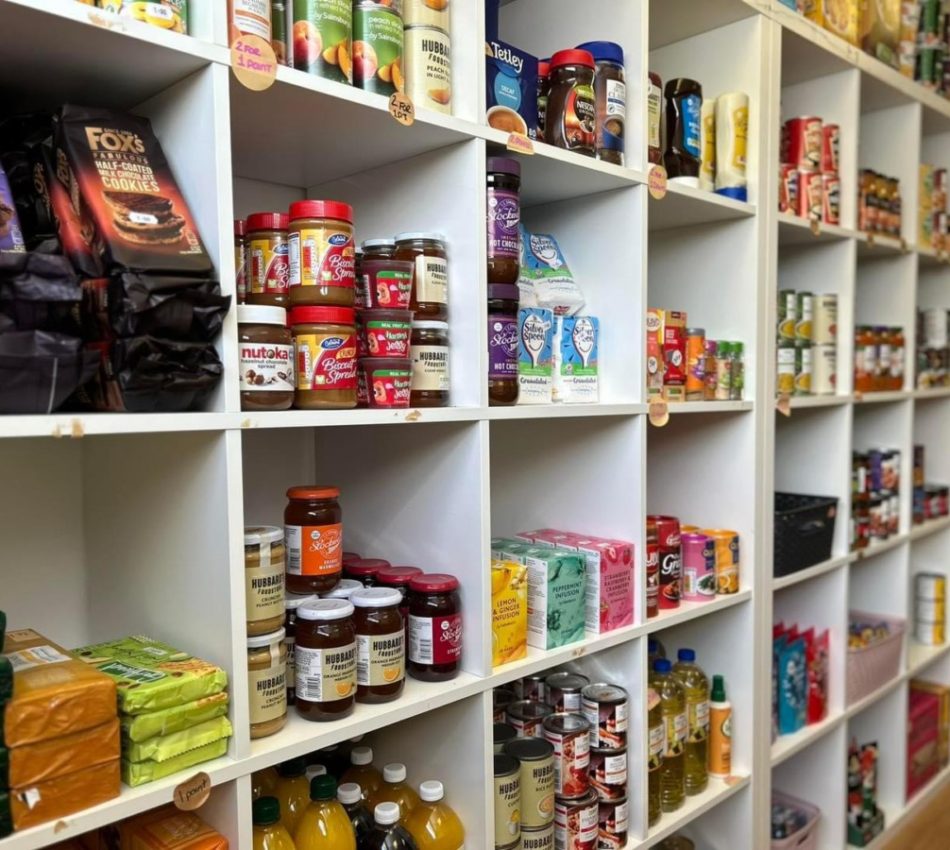The latest Food and You survey from the Food Standards Agency (FSA) makes for sobering reading. The food security chapter reports that 25% of respondents from England, Wales and Northern Ireland are now classed as food insecure. This lack of secure access to safe, nutritious and acceptable food results in reduced quality, variety or desirability of diets, disrupted eating patterns and/or reduced food intake. Given the well-established role of poor diet as a risk factor for chronic diseases, this does not bode well for the future.
Performing Poverty
Although the drivers of food insecurity in this country are largely financial, solutions are generally food-based. Probably most well-known are food banks, which generally supply emergency food parcels for a limited period of time to people who have been referred to them. Altruistic in nature, they have been criticised for the quality of their nutritional offer, as well as the sometimes negative experience of clients. Requiring a referral effectively asks people to prove and perform their poverty and means there is a clear distinction between those who can, and cannot, feed themselves and their families. Since food is an important part of cultural and personal identity, it is not surprising that this undermines dignity and is often experienced as shameful, no matter how well intentioned. The lack of choice at many food banks is also problematic. Having choice over what to eat is something we usually take for granted; losing it means a loss of autonomy and dignity. Food insecurity is a stigmatising and undignified experience, and many eligible for food bank referral use other options for support, like friends or family, using the food bank only as a last resort.
Food Banks as an Emergency Solution
Food banks themselves are struggling. Originally intended to support people only in the short-term, while the drivers of food insecurity are tackled, they have reported increased repeat usage. They are also reporting fewer resources, including insufficient food supplies and lack of funding. This suggests that food banks are not able to meet the needs of their clients and raises the question of whether the food bank model is broken. There are thus good reasons to question this model, but in the face of increasing demand, and in the absence of direct government intervention, is there another way to address food insecurity and provide food support?
Enter the Social Supermarket
Gaining prominence in the UK is the social supermarket, an innovation which until relatively recently has been more common on the continent. Social supermarkets (also called affordable food clubs, community pantries or larders) allow their members to buy foods at either significantly reduced prices or as part of their membership. One in twenty of the ‘Food and You’ survey respondents reported that they had used a social supermarket in the past 12 months. Far from being niche provision, they are now used more than food banks – and many food banks are themselves pivoting towards a social supermarket model.
What’s It Like?
People accessing social supermarkets are vulnerable. FSA data describes them as predominantly lower income (less than £19,000 p.a.), long-term unemployed or people who have never worked before, or parents of children under 16 years. Supporting them in ways that do not add to the difficult circumstances they are experiencing, matters. Our own research into social supermarkets suggests that it is a model of provision welcomed for several reasons. Social supermarkets broaden access to food support, including many who would not otherwise meet the eligibility criteria for food banks. They offer food choice and variety, and do not usually require referrals (although their membership may be conditional e.g. living locally). They use a pay-as-you-feel model (where members can pay as much or as little as they wish, without pressure), or a subscription model (e.g. a small payment is required for each shop, but goods of much greater value are received). Social supermarkets often include community cafés, to help tackle social isolation and strengthen community cohesion, as well as additional support services. These contribute to a more dignified and reciprocal experience and greater autonomy of and support for the social supermarket members.
Negative stereotypes of users of food support services abound. But our data also indicate that the majority of members only go when they need to, for example when money is tight, and skip the week if they do not need it.
Looking to the Future
No matter how food support is structured to try to address the needs of their members in the best, most sustainable way possible, the sad truth of food insecurity remains. Social supermarkets offer advantages over food banks, but it is important to remember that the context in which they emerged was defined by growing food insecurity in the UK. Some of their members (mostly pensioners or people with limited social networks) may visit them for social reasons – a hot drink and a much-needed chinwag. For most, they offer essential support at a difficult time but they are not a panacea.
The ideal would be a more equitable food system where food support was not needed because everyone could access enough of what they needed. The FSA data suggests this remains a long way off.
Authors: Ronald Ronald (Kingston University), Nevena Nancheva (Roehampton University), Hilda Mulrooney (London Metropolitan University), Sarah Sumpter (Kingston University) and Dee Bhakta (London Metropolitan University)

